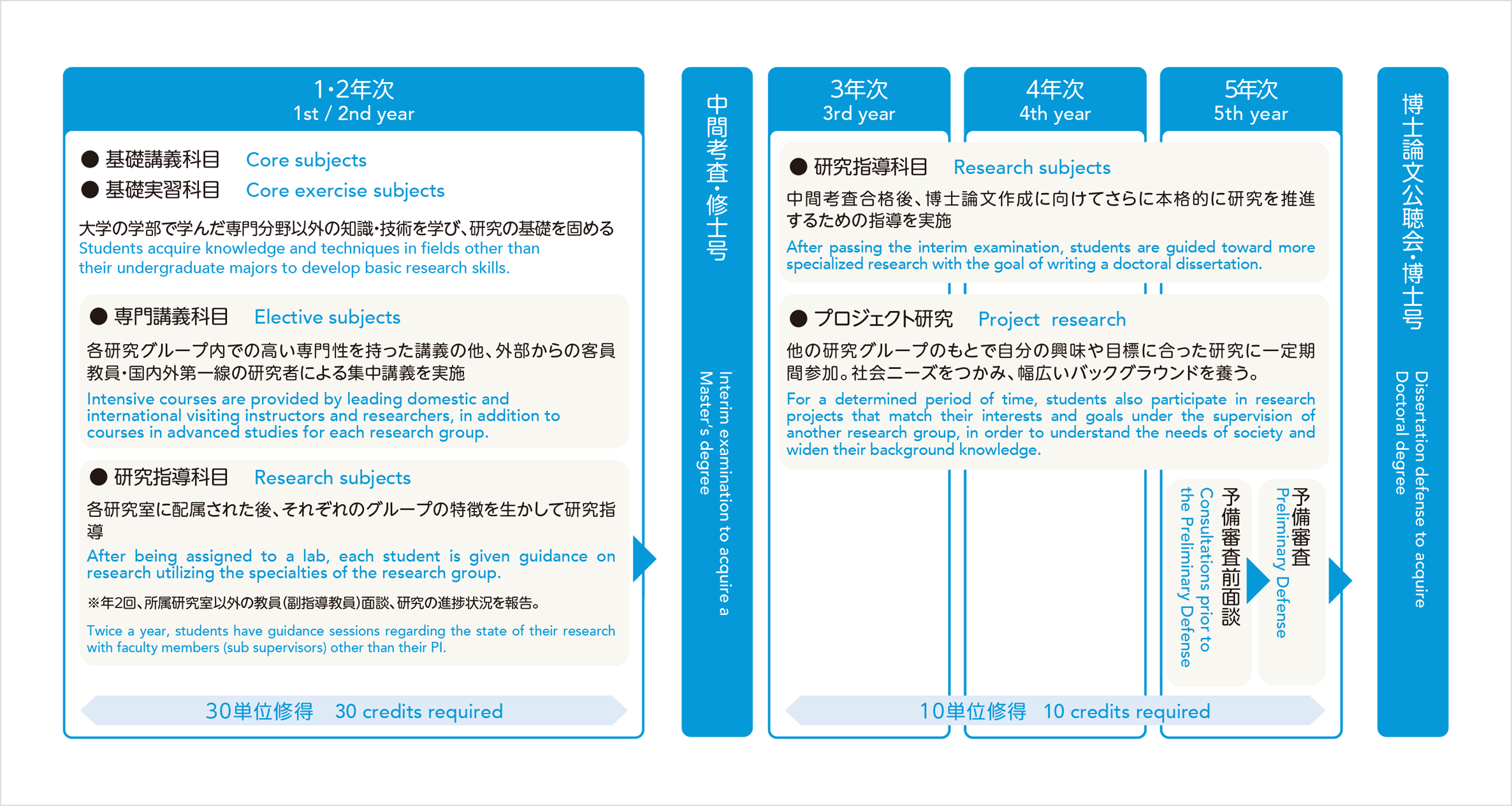Curricula details

- *Almost all core subjects are taught in Japanese and/or English. This makes it possible to obtain a doctoral degree using only English.
Requirements for Completion (Those enrolled in or after AY 2018)
| Subject group | Year | Requirements | ||||
|---|---|---|---|---|---|---|
| Group A | Core Subjects | 1 | 2 credits | Total 16 credits or more | 30 credits *required for Master's Degree |
40 credits *required for Doctor's Degree (for 5-year intensive doctral course) |
| Group B | Elective Subjects | 1-2 | 12 credits | |||
| Group C | Research Subjects | 1-2 | 14 credits | |||
| Group D | Project Research Subjects | 3-5 | 2 credits | 10 credits *required for Doctor's Degree (3rd year transfer students only) |
||
| Group E | Research Subjects | 3-5 | 8 credits | |||
Student Handbook
Subjects / Schedule / Syllabus
List of Forms
Petition for leave of absence
| Applicable individuals | Those who wish to take a leave of absence |
|---|---|
| Deadline | Two weeks prior to the desired start date of leave of absence |
| Submit to | Educational Affairs Section |
| Submission method |
Petition for withdrawal
| Applicable individuals | Those who wish to withdraw |
|---|---|
| Deadline | Two weeks prior to the withdrawal date |
| Submit to | Educational Affairs Section |
| Submission method |
Request for Resumption of Studies
| Applicable individuals | Those who wish to return to school before the end of their leave of absence |
|---|---|
| Deadline | Two weeks prior to the desired date of Resumption |
| Submit to | Educational Affairs Section |
| Submission method |
Request for Change of Supervisor
| Applicable individuals | Those who wish to change their supervisor |
|---|---|
| Deadline | As needed |
| Submission method | Answer via Forms |
Research Instruction Plan / Research Instruction Report
| Applicable individuals | D1 to D5 Students |
|---|---|
| Deadline | April Entrants: End of February October Entrants: End of August |
| Submit to | Educational Affairs Section |
| Submission method |
Biomechanics Interview Report
| Applicable individuals | D1 and D2 Students |
|---|---|
| Deadline | In principle, within one week after the interview |
| Submit to | Sub-supervisor and Supervisor |
| Submission method | Follow the instructions of the sub-supervisor and supervisor. |
Group B Seminar Report
| Applicable individuals | D1 and D2 Students |
|---|---|
| Deadline | In principle, within two weeks after attending the seminar |
| Submit to | Supervisor |
| Submission method | Follow the instructions of the supervisor. Upon submission, answering via Report Forms is required. *The URL for Report Forms is stated in the Group B Seminar Report. |
